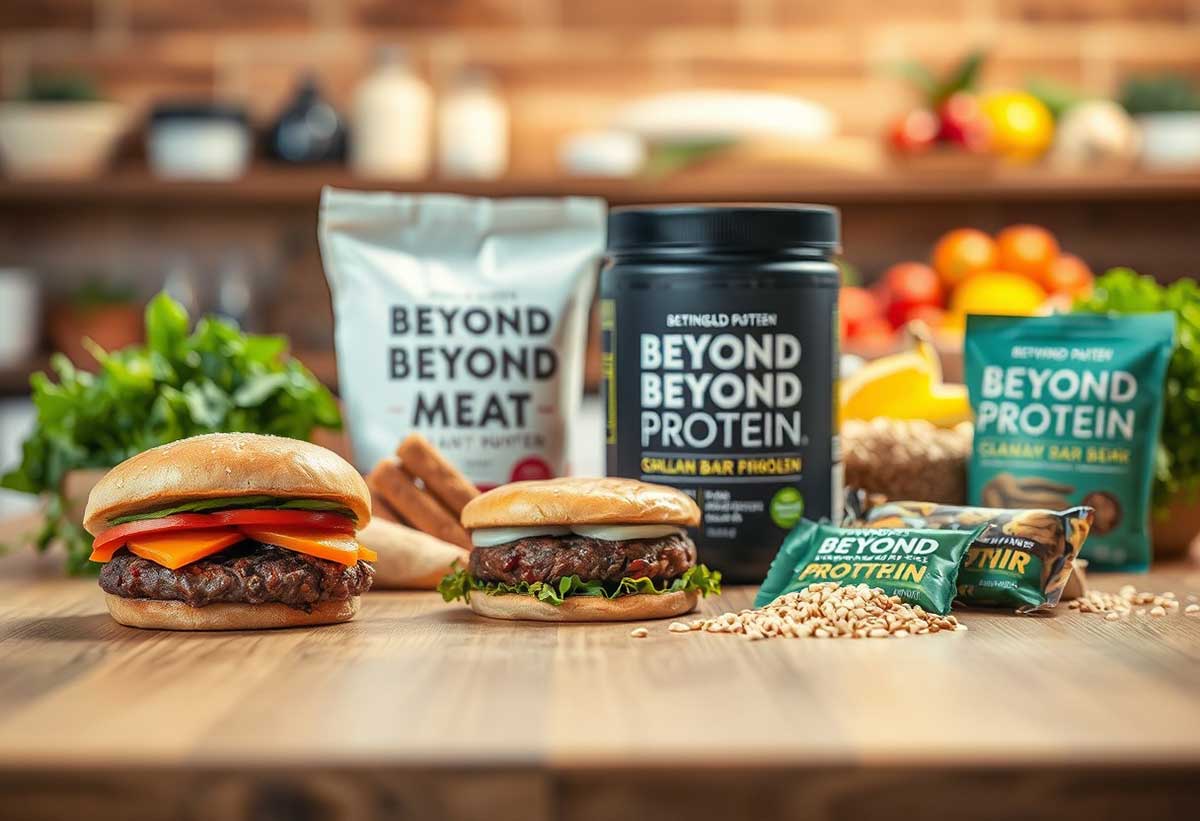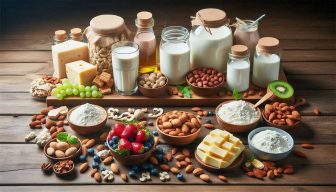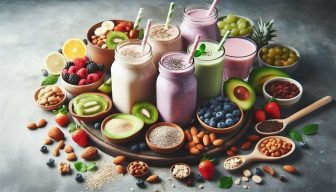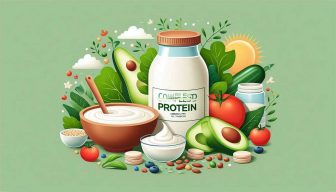Many athletes and fitness enthusiasts are on the lookout for effective plant-based protein sources to support their muscle-building and recovery goals. Incorporating the right vegan protein into your diet can be both a game-changer for performance and a delicious addition to meals. This blog post will explore top plant-based protein sources, their nutritional value, and practical tips for integrating them into your routine, while also debunking common misconceptions about plant-based diets.
The Importance of Protein for Athletes
As an athlete or fitness enthusiast, you understand that nutrition plays a pivotal role in optimizing performance and achieving your goals. Among the key macronutrients, protein stands out as vital for muscle building and recovery. Protein provides the imperative amino acids your body needs to repair damaged tissues, build muscle mass, and enhance overall athletic performance. Incorporating adequate protein sources into your daily regimen is critical, especially when pursuing a plant-based diet. Building muscle effectively requires not just any protein but high-quality sources that support an athlete’s rigorous training. Plant-based protein options, such as lentils, quinoa, and chickpeas, are not only rich in amino acids but also packed with other nutrients that aid muscle recovery and overall health. Unlike animal proteins, which often come with added saturated fats, plant-based proteins offer a heart-healthy alternative. This allows you to support muscle growth without compromising your dietary goals, making them excellent for those dedicated to fitness and well-being.
Role of Protein in Muscle Building
Building muscle is a meticulous process that hinges on the right intake of protein. When you progressively overload your muscles through training, small tears occur within the muscle fibers. Your body uses protein to repair and rebuild these fibers, which is how muscle growth happens. The timing and distribution of your protein intake throughout the day can also impact your muscle-building efforts. Make sure to consume a source of protein both pre- and post-workout to fuel your muscles effectively and enhance recovery. While many believe that plant-based diets lack adequate protein, this is a misconception that can be easily dispelled. In fact, many plant-based foods are incredibly high in protein, and when combined properly, they offer all the imperative amino acids necessary for muscle repair and growth. Foods such as tempeh, edamame, and seitan are excellent sources that can rival traditional protein sources in terms of quality and efficacy, making them powerful allies in your muscle-building journey.
Protein Needs for Different Activity Levels
Activity levels play a crucial role in determining your protein needs. Generally, athletes engaged in intense training or strength-building activities will require more protein than those with a more sedentary lifestyle. The recommendation for endurance athletes is typically around 1.2 to 1.4 grams of protein per kilogram of body weight, while individuals focused on building muscle may need as much as 1.6 to 2.2 grams per kilogram. Understanding these needs empowers you to optimize your diet based on your specific training intensity and goals. With a thoughtful approach to your nutrition, you can ensure that you’re meeting your protein needs, regardless of your activity level. For instance, if you’re a strength athlete, incorporating diverse sources of plant-based protein—such as hemp seeds or black beans—into your meals will help satiate your body’s demands. Always remember that how much you need varies; the most important point is to listen to your body while remaining consistent with your dietary choices. Planning your meals strategically will leave you maximally fueled for muscle building and ready for a successful recovery.
Top Plant-Based Protein Sources
Any fitness enthusiast or athlete looking to optimize their diet will find that choosing the right protein sources is crucial for muscle building and recovery. Among the best choices you can make are legumes, which include a cornucopia of options like beans, lentils, and peas. These nutrient-packed powerhouses are rich in plant-based protein, with black beans offering around 15 grams of protein per cooked cup, while lentils provide about 18 grams. In addition to protein, legumes are loaded with fiber, which aids in digestion and promotes lasting energy release—ideal for fueling your workouts and enhancing recovery. To incorporate more legumes into your diet, consider adding them to salads, soups, or stir-fries, or even create a hearty bean burger for a satisfying meal.
Legumes: Beans, Lentils, and Peas
Protein sources such as legumes are particularly versatile and easy to prepare, making them perfect for any meal of the day. Not only are they affordable, but they also contain crucial vitamins and minerals, including iron and magnesium, that support muscle function and overall health. However, be mindful of the cooking process to maximize their nutritional value. Proper soaking and cooking can help eliminate anti-nutrients that can inhibit nutrient absorption. Don’t hesitate to experiment with different types of legumes—try chickpeas in a hummus dip or lentils in a comforting dal.
Whole Grains: Quinoa, Brown Rice, and Oats
Whole grains are another excellent addition to your plant-based protein arsenal, providing a fantastic source of energy for athletes. Whole grains like quinoa, brown rice, and oats are not only rich in protein but also contain crucial amino acids that contribute to muscle synthesis and recovery. Quinoa, in particular, is a complete protein, delivering about 8 grams of protein per cooked cup along with impressive levels of fiber and antioxidants. Brown rice and oats also offer considerable amounts of protein, making them fantastic staples in any athlete’s diet.
PlantBased foods such as quinoa, brown rice, and oats are incredibly versatile and can be incorporated into your meals in numerous ways. You can enjoy a warm bowl of oatmeal for breakfast, use quinoa as a base for salads or stir-fries, or serve brown rice as a side dish to complement your favorite stir-fried vegetables. Whole grains are a perfect way to fuel your workouts, promote muscle building, and aid in your recovery process, proving that you can meet your protein needs without sacrificing flavor or variety. Consider these whole grains your allies in achieving optimal performance and muscle growth!
Nuts and Seeds
It’s no secret that nuts and seeds are among the top contenders when it comes to plant-based protein sources, making them crucial for your muscle-building and recovery journey. Packed with healthy fats, fiber, and a variety of crucial nutrients, these little powerhouses can help you achieve your fitness goals while enjoying delicious snacks. According to recent discussions on protein sources, you might discover that some athletes are redefining traditional views around nutrition and masculinity by embracing plant-rich diets.
Nutritional Benefits of Nuts and Seeds
To truly appreciate the value of nuts and seeds as a source of plant-based protein, it’s important to look at their impressive nutritional profiles. Almonds, for instance, offer about 6 grams of protein per ounce and are rich in Vitamin E, magnesium, and antioxidants, all of which support muscle recovery. Meanwhile, chia seeds are a veritable nutrient-dense option, boasting 5 grams of protein and an incredible amount of omega-3 fatty acids and fiber per two tablespoons. These nutrients not only assist in muscle building but also foster optimal recovery by reducing inflammation and promoting heart health.
Easy Ways to Incorporate Them into Your Diet
Your snacking habits can significantly influence your overall protein intake, and incorporating nuts and seeds into your diet is easier than you might think. Try adding a handful of walnuts to your morning oatmeal or sprinkling flaxseeds into your smoothies for an added protein boost. Furthermore, you can whip up some homemade nut butter and use it as a dip for apple slices as a quick, satisfying snack that keeps your energy levels high without the crash.
Incorporate these nutrient-rich options into your daily meals by mixing sunflower seeds into salads or creating your own trail mix with a blend of your favorite nuts. Don’t underestimate the power of a simple handful of mixed nuts as a snack before or after your workouts. This not only satisfies hunger but also aids your muscle recovery, making them a must-have in your plant-based protein arsenal. Be mindful of, diversifying your protein sources not only keeps meals interesting but also ensures you receive a comprehensive array of nutrients.

Plant-Based Protein Powders
Not all protein powders are created equal, and if you’re venturing into the world of plant-based protein, you’ll discover a variety of options tailored to your specific needs. Whether you’re aiming for muscle building, enhancing recovery, or simply boosting your daily protein intake, understanding the different types of protein powders can help you make informed choices. Below, we’ve compiled a quick reference of some popular types of protein powders you might consider:
| Protein Powder Type | Nutritional Benefits |
|---|---|
| Pea Protein | High in branched-chain amino acids, great for muscle recovery. |
| Brown Rice Protein | Rich in imperative amino acids, can enhance muscle building. |
| Hemp Protein | Contains omega-3 fatty acids and is easily digestible. |
| Soy Protein | Complete protein source, ideal for athletes needing recovery. |
| Mixed Plant Protein | Combines various sources for a balanced amino acid profile. |
Recognizing the variety in plant-based protein powders allows you to select one that complements your diet and fitness goals. Each type offers unique nutritional benefits that can effectively support your journey in muscle building and recovery.
How to Choose the Right One
Powders can vary significantly in their ingredients, amino acid profiles, and nutrient content. When you’re looking for the right vegan protein powder, consider what your primary fitness goals are. If muscle building is your focus, you’ll want a powder that offers a complete amino acid profile. For recovery, you might prioritize blends that include additional nutrients like BCAAs or even creatine. Always read the labels to check for unnecessary additives or sugars that could detract from your fitness endeavors.
Choosing the right protein powder involves making decisions based on taste, texture, and how well it fits your overall dietary requirements. Types of protein powders like soy and mixed plant protein can provide comprehensive amino acid profiles that are very effective for athletes. Remember to also consider how each option complements your meals—whether in smoothies, oatmeal, or baked goods, your protein powder should enhance your diet without turning it into a chore.
Complete vs. Incomplete Proteins
Despite the growing popularity of plant-based diets among athletes and fitness enthusiasts, there remains a prevalent misconception regarding the concept of protein completeness. Many believe that only animal sources provide complete proteins, which contain all nine necessary amino acids necessary for muscle building and recovery. However, understanding how plant proteins fit into this narrative is crucial for anyone looking to optimize their nutrition through a vegan lifestyle.
Understanding Protein Completeness
Any well-rounded diet should consider the amino acid profile of the foods you consume. Animal proteins, such as meat and dairy, are categorized as complete proteins because they provide all necessary amino acids in sufficient quantities. In contrast, most plant proteins are deemed incomplete since they tend to lack one or more necessary amino acids. However, that doesn’t mean you can’t get all the nutrients you need from a plant-based diet. By incorporating a diverse array of plant sources, you can easily meet your protein needs.
Combining Plant Proteins for Optimal Nutrition
Completeness matters, but it’s also vital to understand that you can achieve a balanced amino acid intake through careful food combinations. For instance, pairing different plant-based proteins, such as rice and beans or hummus and whole grain pita, gives you a complete amino acid profile. This approach allows you to maximize your protein consumption and ensures you’re fueling your body adequately for recovery and muscle building.
For instance, consider adding a variety of legumes, grains, and seeds in your meals. Lentils and quinoa are perfect examples; while lentils are high in lysine, quinoa offers a complete amino acid profile, making this combination immensely beneficial. Always aim for balance to ensure your body receives the necessary nutrients it needs to recover effectively post-training. Consequently, embracing these combinations can truly unlock the power of plant-based protein in your fitness journey.
Overcoming Common Misconceptions
Unlike the prevalent belief that plant-based proteins simply can’t compete with animal proteins for muscle building, many athletes and fitness enthusiasts find that they can achieve their dietary goals with a variety of plant-derived sources. It’s crucial to recognize that the effectiveness of protein in muscle development is not exclusively tied to its origin but rather its total amino acid profile and your overall nutritional intake. Many vegan proteins, such as lentils, chickpeas, and quinoa, provide ample amounts of the necessary amino acids that promote muscle repair and growth. The key is understanding how to strategically incorporate these sources into your diet.
Plant-Based Proteins and Muscle Building
Proteins are made up of amino acids, some of which are necessary for muscle recovery and growth. When you consume a variety of plant-based proteins, you not only get important nutrients but also a range of these amino acids. Foods like black beans, edamame, and hemp seeds not only provide protein but also are rich in fiber, minerals, and healthy fats, making them prime options for athletes invested in muscle building. Combining these sources can further enhance your protein profile, ensuring you get a balanced mix for optimal performance and recovery.
Addressing the Protein Quality Concern
Misconceptions about the quality of plant-based proteins are often rooted in the idea that they lack one or more necessary amino acids. In reality, most plant proteins might be less concentrated than animal proteins, but that doesn’t mean they aren’t effective. Foods like quinoa and soy are complete proteins, containing all nine necessary amino acids, while combining different sources, such as legumes with grains, can easily give you a complete amino acid profile. You don’t have to rely solely on animal-based sources to meet your protein needs.
Overcoming these misconceptions requires a commitment to understanding your body and how it responds to various protein sources. While it’s true that some plant proteins might initially seem incomplete, it’s important to focus on diversifying your diet with different plant-based protein sources and ensuring you meet your total protein requirements. By incorporating a variety of legumes, nuts, seeds, and whole grains, you can build a robust nutrient profile that supports not just muscle building but also overall recovery and health.
To Wrap Up
With these considerations in mind, it’s clear that incorporating vital plant-based proteins into your diet can significantly enhance your muscle-building and recovery efforts. As an athlete or fitness enthusiast, you can thrive on plant-based sources, gaining not only the protein necessary for muscle repair but also a host of other beneficial nutrients. Whether you choose lentils, quinoa, chia seeds, or hemp protein, you’ll find that these foods are packed with amino acids, vitamins, and minerals that will support your performance and overall health. You can learn more about the broader implications of plant-based proteins from resources such as this Comprehensive Review on the Role of Plant Protein As a Potential Alternative for Muscle Building.
Keep in mind, the world of plant-based proteins is not only diverse but also incredibly satisfying. You can mix and match these foods in creatively delicious ways, ensuring that you never feel deprived. From smoothies packed with pea protein to bowls brimming with quinoa and beans, your meal prep can be as exciting as it is nutritious. By embracing a plant-based protein-rich diet, you are not only investing in your fitness goals but also contributing positively to your health and the environment. Empower yourself with knowledge and the right foods to optimize your muscle building and recovery journey!






